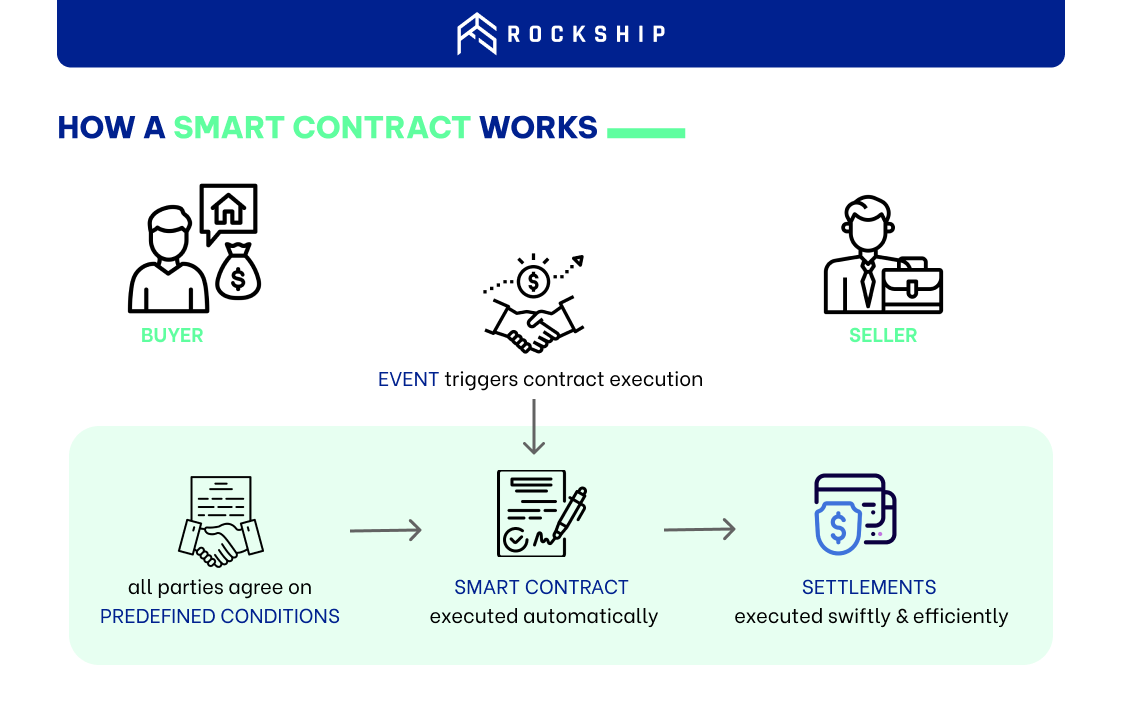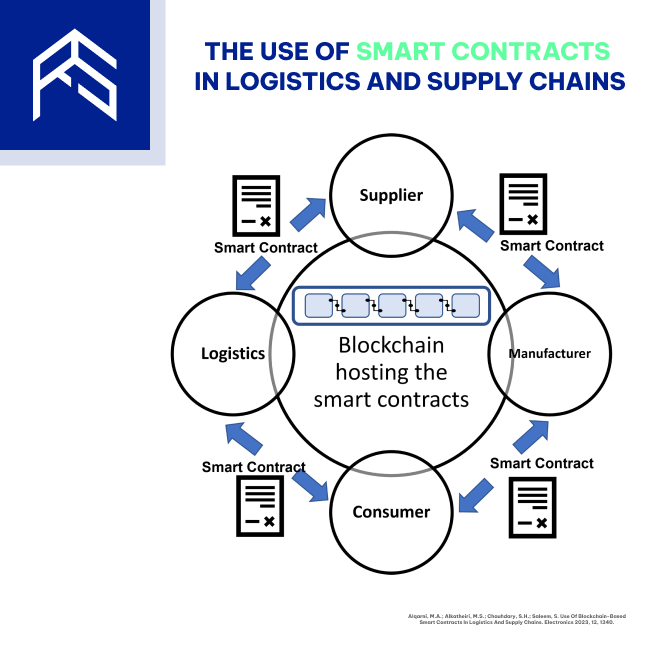As distributed ledger technology and smart contracts gain mainstream adoption, the potential of artificial intelligence is transforming how businesses operate and interact. You likely understand the basic premise of smart contracts - self-executing code that runs on the blockchain to facilitate the exchange of anything of value in a transparent, conflict-free way. However, the power of smart contracts is limited since they can only execute predefined rules and logic. By integrating AI with smart contracts, they become adaptive, intelligent, and able to handle complex real-world scenarios. This opens up opportunities to streamline business processes, enable new revenue models, and build deeper customer relationships. The combination of AI and smart contracts is poised to unlock the true potential of blockchain and revolutionize industries. In this article, you'll learn how AI-enabled smart contracts work, see examples of companies already leveraging this technology, and gain insights into how your organization can benefit. The future of transacting business is here.
Overview of Smart Contract
Smart contracts are self-executing contracts with the terms of the agreement between buyer and seller directly written into lines of code. They allow for trusted transactions and agreements to be carried out among disparate, anonymous parties without the need for a central authority, legal system, or external enforcement mechanism.
Smart contracts operate on the principle of utilizing "if/when...then..." statements, which are translated into code and executed on a blockchain. When predetermined conditions are verified, computers autonomously perform actions, such as releasing funds, registering assets, issuing notifications, or generating tickets. As a result, the blockchain is updated, and the transaction becomes trackable and irreversible once the smart contract is fulfilled, with only authorized parties able to access the outcome.
To establish a smart contract, participants must define the terms and determine how transactions and associated data will be represented on the blockchain. They must reach an agreement on the rules governing the "if...then" conditions. Subsequently, developers can construct the smart contract based on these specifications.

Smart contracts offer enhanced trust and transparency by eliminating the need for intermediaries and utilizing encrypted transaction records. This results in heightened security and ensures the privacy of personal information.
Furthermore, smart contracts eliminate transaction costs as they eliminate the requirement for intermediaries. This not only minimizes delays but also reduces overall transaction expenses.
Smart contracts are revolutionizing various industries. In DeFi, they enable complex transactions like lending and borrowing. In the world of NFTs, smart contracts facilitate the creation and transfer of unique digital assets. Gaming is also being transformed through smart contracts, allowing players to buy, sell, and engage in game-specific actions. These applications demonstrate the transformative potential of smart contracts in enhancing efficiency and user empowerment.
How can Smart Contracts and AI work together?
Smart contracts, while powerful in their primary mechanism, can encounter challenges when it comes to handling complex transactions, rigid designs, and adaptability to changes. However, the integration of AI can significantly enhance the functionality of smart contracts in addressing these limitations.
1> Advanced Analytical and Predictive Capabilities
Through AI implementation, technology can be elevated to the next level by introducing advanced analytical and predictive capabilities. This integration empowers smart contracts to analyze data, identify patterns, and make informed predictions about the outcomes of contracts, leading to increased efficiency and improved decision-making.
2> Revolutionizing Transactional Processes
The combination of AI and smart contracts has the potential to revolutionize transactional processes, making them more efficient, flexible, and effective in various domains and industries.
3> Adaptive Systems and AI's Role
In the context of convergence, AI can complement smart contracts by enhancing their adaptiveness through the utilization of adaptive systems such as logic, neural graphs, and neural networks. AI plays a crucial role in improving the functionality of smart contracts.
4> Real-Time Monitoring and Predictive Analysis
AI's application can be demonstrated through scenarios like monitoring payment obligations. AI's predictive capabilities can anticipate difficulties, enabling proactive solutions. Employing AI in this manner enhances the efficiency and risk management aspects of contractual agreements.
5> Informed Decision-Making
AI evaluates the performance of smart contracts through predictive analysis, uncovering trends, patterns, and potential risks. This analysis provides insights that guide the negotiation and drafting of smart contracts, reducing uncertainty and facilitating more informed decision-making processes.
Does AI really bring out the best in Smart Contracts?
The integration of AI in smart contracts offers a range of notable advantages. In addition to the previously mentioned benefits, enhanced security stands out as a significant advantage.
- By leveraging AI capabilities, smart contracts can detect and mitigate fraudulent activities through pattern analysis and anomaly detection. This ensures the proper execution of contracts and safeguards the interests of all stakeholders.
- Furthermore, AI can play a crucial role in monitoring and enforcing regulatory compliance, thereby reducing the potential for legal disputes and associated penalties. The incorporation of AI in smart contracts adds an extra layer of protection and promotes trust and confidence in blockchain-based transactions.
- Moreover, AI-powered smart contracts offer extensive applicability across various industries and sectors. Within the supply chain industry, these smart contracts can play a pivotal role in automating and streamlining the verification and payment procedures between suppliers and buyers. This automation enhances operational speed, accuracy, and transparency, leading to improved overall business performance.

The utilization of AI-powered smart contracts in the supply chain industry represents a transformative step towards increased efficiency and cost-effectiveness in managing transactions and fostering stronger business relationships
Challenges and Road ahead
While AI and smart contracts each have tremendous potential on their own, combining them unlocks even greater possibilities. However, integrating AI into smart contracts also introduces challenges that must be addressed before mainstream adoption.
1> Technical limitations
Current blockchains like Ethereum have limited computing power, storage, and bandwidth, making complex AI models difficult to implement in smart contracts. Solutions like off-chain oracles can help but reduce transparency and introduce security risks.
→ Decentralized storage and computing projects aim to provide the infrastructure for AI and smart contracts to scale together.
2> Bias and unfairness
Like any technology, AI models can reflect and even amplify the biases of their human creators. When combined with smart contracts, biased AI could negatively impact marginalized groups.
→ Diversity and inclusion initiatives, enhanced oversight, and tools to detect bias during development and monitoring are all needed to address this crucial issue.
3> Incentive challenges
The individuals and entities developing AI and smart contracts are not always properly incentivized to address these issues. For example, startups may prioritize growth over privacy, transparency or ethics.
→ Government policy, consumer pressure, and a commitment to responsible innovation can help motivate stakeholders to consider the societal impact of their creations.
The path to integrating AI and smart contracts is not straightforward but with openness to collaboration and a shared goal of building technology that benefits humanity, these challenges can be overcome. Exciting possibilities await.
Conclusion
As blockchain technology and smart contracts continue to evolve, AI is poised to take them to the next level. By integrating machine learning and natural language processing into smart contracts, they can become far more sophisticated and mirror human logic and reasoning. AI-infused smart contracts will be able to analyze far more data, understand complex situations, and make dynamic decisions based on changing circumstances. They open up the possibility of automating even the most complex agreements and transactions.
While still in their infancy, AI-powered smart contracts represent the future of blockchain and what may be possible when two emerging technologies converge. They could transform how businesses operate, streamline processes, reduce costs, limit fraud, and enable new products and services. The potential here is enormous, even if there are risks and challenges to consider with any new innovation. As with any technology, the key will be ensuring AI is applied and governed responsibly and for the benefit of all. If we're able to do that, AI-infused smart contracts could be a real game-changer. Discover AI solutions for smart contracts with our experts today! Schedule a 30 FREE-Minute Chat!



